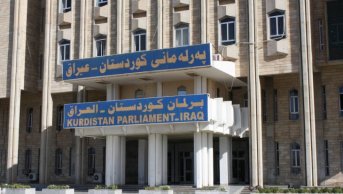Impacts of the Coup in Egypt on Middle Eastern Dynamics

July 3, 2013 will have a particular importance in the process of democratization of the Middle East. However, in a couple of days or weeks, rather than the legitimacy or legality of the attempted coup in making a counter-revolution in Egypt, its impacts on balances in the Middle East will be further discussed.
To that end, there are some notes below to contribute to the aforesaid discussions:
Palestine is one of the leading actors being affected by the latest development in Egypt. Each critical development in Egypt affects Palestinians due to Egypt's particular position and historical role in the Palestinian problem. It may be that the new government will not lean towards Hamas at all. Furthermore, this time, the opposition to Hamas will not be an artificial attitude that appears at Israel's request from Egypt. It wouldn't be incorrect to believe that the Egyptian government will enter a problematic period, not only within the border of the country, but also with neighboring allies of the Muslim Brotherhood (MB). By all means, the new Egyptian government will particularly focus on the transition period in internal politics, political stability and economic recovery. It could be that Gaza's economy might slow down and that a bid for a government change in Gaza -- in which Israel does not at least directly have a role -- could be launched, if conditions are suitable. In that case, it seems that the Hamas leadership will face problems as well. It's possible that losing its headquarters in Egypt after losing its one in Syria would have an impact on the coordination of Hamas' foreign affairs. It wouldn't be surprising for Hamas to move its new external headquarters (or political bureau) to Turkey because of the Gulf countries discountenancing of the MB and Turkey's support of Hamas.
Syria is one of the countries that will be affected most by the developments in Egypt. The underlying reasons can be listed as follows: Post-revolution Egypt has made financial, ideological, logistical and organizational contributions to the opposition in Syria. However, it is unlikely that the new government in Egypt will adopt a similar attitude. The Syrian regime will be relieved, even if only for a while. Furthermore, the Syrian MB leading opposition movement will not be able to act in Egypt like it did before. The majority in the Syrian opposition meetings held in Egypt might shift from Islamist groups to secular groups. It is not realistic to expect that the new Egyptian administration will support the regime of Syrian President Bashar al-Assad. On the other hand, it might also keep the Syrian opposition -- and especially the Islamist wing within the Syrian opposition -- at a further distance. This situation could increase the contradiction within the Syrian opposition, and it could increase the internal conflict as well. Thus, the al-Assad administration assumes that the change in Egypt will negatively affect the Islamist movements across the Middle East. The cheerful statements Syria made right after the recent government change in Egypt can be regarded as the indicator of this assumption.
Saudi Arabia is one of the countries that has also taken advantage of the crisis. Three reasons for that are as follows:
1) The MB in Egypt is both an ideological and political rival of Saudi Arabia. This blow the MB received is not limited to it just losing power in Egypt. The fact that the MB is very likely to stagnate in other places that have strong Islamic movements in the Middle East will enlarge the radius of action of various Salafi movements supported by Saudi Arabia.
2) In Saudi Arabia, the idea that Egypt, under the leadership of the MB, could meet on common ground with Iran had caused trepidation. Morsi holding official talks with Iran further triggered that fear. Therefore, the exclusion of a political actor who may have a tendency to favor Iran -- a nation normally considered to be the major enemy in Egypt -- can be considered a gain for Saudi Arabia.
3) It is highly likely that Salafi movements will come into power rather than the MB as a result of political instability in Egypt. If the coup fails to generate the expected result, the economic problems in the country are not solved and the new political movement supported by the army collapses, the polarization of society will increase. This situation might put the Islamist parties in Egypt into power again and make them stronger. Despite being much weaker than the MB in terms of grassroots organization, the Salafis are not being subjected to heavy pressure and could become a new attractive force. With the prestige that the MB has lost in recent events, the Salafis, who can reinforce their organizational structure through the money received from Saudi Arabia, might become the most important political power in Egypt in the near future.
Israel has also taken advantage of the crisis. The underlying reasons can be listed as follows:
1) The new government in Egypt needs open support. It is not possible for the new government to receive the support of the West with anti-Israeli rhetoric and practices.
2) The MB threat that could have surrounded Israel has not been an issue for Israel for a long time. In states such as Egypt, Syria and Jordan, the possibility that the MB and organizations close to the MB could come into power had decreased to a great extent because of elections, civil war, etc.
3) The support for Hamas was considerably damaged. Potential anti-Hamas policies (policies that at least do not support Hamas) in Egypt will be a relief to Israel. At this point, Hamas will either agree with Fatah over the supervision of Arab states to gain international legitimacy, or it will be isolated. This situation might contribute to the isolation of Hamas, and Israel wouldn't even have wasted any particular resources for that.
4) The hazard of any approaches between Iran and the MB has been removed. It can be said that Egypt will take a clear stand against Iran from now on.
Iran has been affected by the change of power in Egypt in various aspects. At this point, it is hard to say whether Iran has won or lost. But still, Iran may have been affected in the following ways:
1) The exclusion of the MB has negatively affected Iran's bid to take advantage of the splits in the Arab world. The main goal of establishing close relations between the MB administration and Iran -- relations that are regarded with suspicion, especially by Saudi Arabia and Jordan -- was Iran's willingness to prevent the formation of a joint Arab front as much as possible. When considered from this point of view, it can be said that Iran will not be content with a new Egyptian government that may conflict with it.
2) The blow the MB has taken in Egypt, and which it has felt across the Middle East, will be a relief to Iran in Syria. Moreover, the clash of ideas that appears on the Arab front (especially in Saudi Arabia and Qatar) might lead to splits within the opposition in Syria.
3) While all eyes are turned toward Egypt, the violence being used by the al-Assad regime in Syria remains behind the scenes.
4) The rising power of Saudi Arabia in Egypt in the forthcoming period can be assessed as bad news for Iran. The closer relations of Egypt, Saudi Arabia, Jordan and the UAE might lead to a new game of power from the eastern Mediterranean to the Persian Gulf.
5) In Egypt's near future, the potential problems it will face with Turkey -- or Turkey's potential decrease of influence in Egypt -- can be read as good news for Iran. The view of Syria, Lebanon, Palestine and Iraq on Turkey's weakening position in relations with Egypt can also be considered an advantage for Iran.










